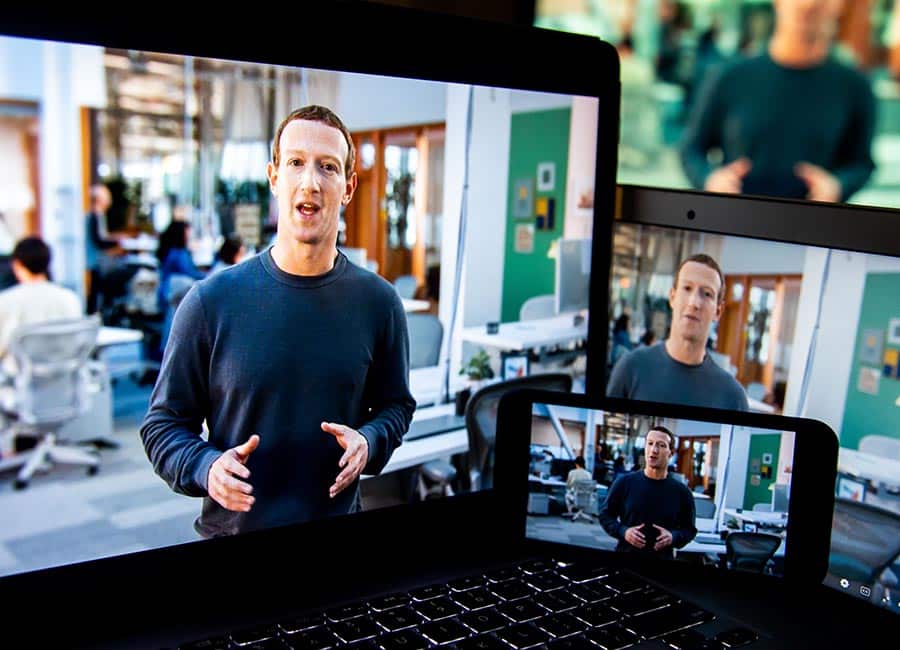Irish-run tech firm Intercom has raised another $50m (€44m), this time via a funding round led by VC firm Index Ventures. The company, which was founded in San Francisco by four Irish entrepreneurs in 2011, has raised over €100m since launching. It also plans to create up to 100 jobs in Dublin over the coming year.
Intercom’s software is a customer communication platform with a suite of integrated products for sales, marketing, product, and support. “It’s one simple platform for every team in an internet business to communicate personally with their customers,” said Intercom co-founder Eoghan McCabe.
The company was founded by McCabe, Des Traynor, Ciarán Lee and David Barrett. Now employing more than 250 people, Intercom’s 10,000 paying customers worldwide include Shopify, Yahoo and Droplr.
Intercom is headquartered in Silicon Valley and operates an R&D team in Dublin. Investors in Intercom’s latest funding round include Stripe cofounders Patrick and John Collison, as well as Stewart Butterfield, chief executive of Slack.
Other backers for Intercom include Twitter co-founder Biz Stone and Huddle founder Andy McLoughlin, who provided seed funding in 2012. In August 2015, Intercom secured Series C funding of $35m (€31m), led by Iconiq Capital.
In a video post on the firm’s website to announce the latest funding, McCabe said that it wouldn’t be used just to pursue growth at all costs. He added that Intercom would be launching new products later this year and insisted that the firm was in it for the long haul. “We’ve turned down five acquisition offers at this stage; we’re not going anywhere,” McCabe continued.
Photo: L-R Intercom founders Eoghan McCabe, Des Traynor, Paul Adams and Ciaran Lee
What’s novel about the Intercom story is that Dubiner Eoghan McCabe (pictured) went to Silicon Valley to shake the trees for venture capital. Intercom’s blue sky potential is the key attraction for investors. But as McCabe explains in this blog extract – published in Business Plus in 2014 - ambition to really go for it by hiring the best talent has been equally important in attracting the play money.
One man’s Facebook is another man’s ‘online directory for colleges’, which is how Mark Zuckerberg described his new service initially. In the defining days of any new category, there are dozens of people who happen upon the same fundamental idea. But very few have the capacity to see the true potential for it beyond the obvious. Your vision is the ceiling for your company’s potential. And in venture capital it doesn’t make sense to invest in anyone who isn’t at least trying to build a business that size.
Intercom is our contribution to internet innovation. Internet technologies are still catching up with how humans interact offline. The majority of progress in this space is on the consumer side - Facebook, WhatsApp, Snapchat etc. Intercom is bringing this to business. It’s a seamless, lightweight way for the whole company to connect personally with their customers. The incumbents haven’t innovated in over a decade. In fact, the separate helpdesks, email marketing tools, feedback products, and CRMs have only become more complex.
These disconnected services cannot provide a holistic view of the customer. And as a result, the customer’s experience is very disjointed. Our vision is to be at the centre of all customer communication for all kinds of Internet business, which increasingly every business is becoming. We’re dedicated to going all the way with this.
Engagement Quality
Startups talk a lot about traction as a measure of their potential. When they do, they roll out the biggest number they have, like the number of people who’ve blinked at their sign-up form. Meaningful traction might be something stronger, such as an actual sign up. Yet that’s still missing the point. A better measure is engagement. How intensely are individuals or companies using your product?
Venture investors assess deals on the presumption that the vast majority of the market for the product is untapped, and that it’s extremely large. Otherwise it’s not a venture-stage opportunity with high growth potential. And so the number of customers or users you have will always be expected to be small in the grand scheme of things. However, you’ll need to show that those customers are highly engaged and that they’re extracting a lot of value. A small number of such data points will help you demonstrate the potential that your product could have in the broader market.
We now have just under 2,000 paying companies and annual revenue in the millions. More importantly, 65% of our monthly active users log in to Intercom every week, and 35% of our weekly active users log in five days per week. And while we’ve a lot to improve, customer satisfaction is off the charts.
Aim High
Mamoon Hamid, one of our investors, once said to me: “My hiring philosophy is aim high. Get people you think you can’t get. Shock people that you were able to get a certain person.” This is the only approach that results in a step-change in average talent amongst a team. Great people attract great people and companies who adopt a culture of always stretching to get the very best have been shown time and time again to be the most successful.
We started 2013 with 13 people and finished with 47, all whom are uniquely amazing in ways I’m surprised by daily. Last May we hired former Google and Facebook manager, Paul Adams, as our VP of Product. In January Mark Woolway became our Chief Operating Officer. He now runs finance, operations, legal, HR, recruiting and administration. For PayPal Mark helped raise over $200m in venture capital and led their IPO, and eventual acquisition by eBay for $1.6bn.
He was managing director of Peter Thiel’s hedge fund, Clarium Capital, at its peak worth $8bn. And as executive vice president at Yammer, he raised $127m and led the deal in which Microsoft acquired the company for $1.2bn. People like Mark make everyone up their game and raise the bar for what success looks like.
Know Your Strategy
There are many technology companies whose value is not in fact defined by technology. This does not take from their achievement or worth to the world, but it can be useful to think about in terms of your own business strategy. For example, Groupon is a very valuable company, yet its innovation is in its business model. It’s a promotions company with a website - nobody uses Groupon for its amazing tech. The same can be said for many businesses with incredible sales or marketing.
Intercom does not have an interesting business model. We charge money for people to use our product. And we do not have incredible sales or marketing. What we do have is an innovative product, something that people can’t get elsewhere which does unique things for them. All of our value is in this technology. And our double-digit monthly growth comes from people liking it and sharing it with their friends. Our company will become more valuable mostly by investing in product and making it better for those who use it and allowing it to be used on more platforms in more markets.
When you can articulate your general business strategy, it’s far easier to know which investors will be most excited by your deal, and to make your partnership with them a long-term success. The right investor won’t ever want you to be something you’re not, because they’re investing in you for who you are and what you believe in. That’s your strategy. It defines the opportunity and makes you far easier to bet on.
It’s fair to say that fundraising is a pseudo-achievement. It doesn’t in itself create value. That comes from what you spend the money on. Yet it’s worth celebrating because of what you have achieved to be able to convince smart people to back you.












